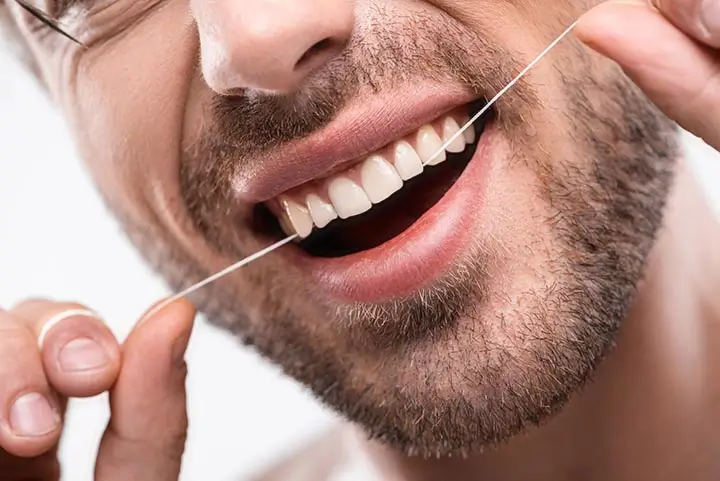When you have tartar build-up on your teeth, you may not know it until you visit your dentist for a regular check-up. Tartar is a rough and porous substance that can form over the gum line and teeth and is essentially hardened plaque. Plaque is a sticky film that contain bacteria and everything you expose your mouth to. Food, smoke, what’s in the air currently, germs, chemicals, you name it; when you open your mouth, be aware of exposure. That is where it starts and if left unchecked, you could set yourself up for undesirable oral health issues. Prevention is the only real way to deal with it on your own; once it builds up to a certain point, the tartar may need a professional.
Floss is your friend
With brushing comes flossing. Once you’re at an age where your teeth touch, there is an increased chance of food, particles, or bacteria to get caught there and fester into plaque. Using floss and even a gentle rinse is a great addition to your routine.
Brush with direction and intention
Brush your teeth on every part of the surface and brushing in a top to bottom motion helps remove tartar built up. Twice a day is the recommendation for brushing your teeth, but after meals is also a great idea.
Tartar control specific toothpaste
Tartar-control fluoride toothpaste is made to prevent the plaque in your mouth from hardening. Also, the fluoride in these toothpastes can help protect your teeth from acidic foods and drinks, as well as strengthening your enamel.
No smoking
It is kind of a general rule of being healthy and unfortunately, people who smoke, do tend to have more issues with staining and tartar build-up. Try to kick the habit, if you have it!
Watch your mouth
Bacteria live off of whatever you put into your mouth, especially sugary and starchy foods. Limit the amount of times you eat to reduce the introduction of more bacteria and try to keep up with a healthy diet and drinking water instead of soda or juice.
Preventative measures seem to be the most important when trying to reduce tartar. If you wait too long to examine your oral health, you may ultimately end up at the dentist to have the tartar and/or plaque removed with special tools. Visiting your dentist on a regular, every 6-month basis, is essential to getting ahead of any dental complications.

